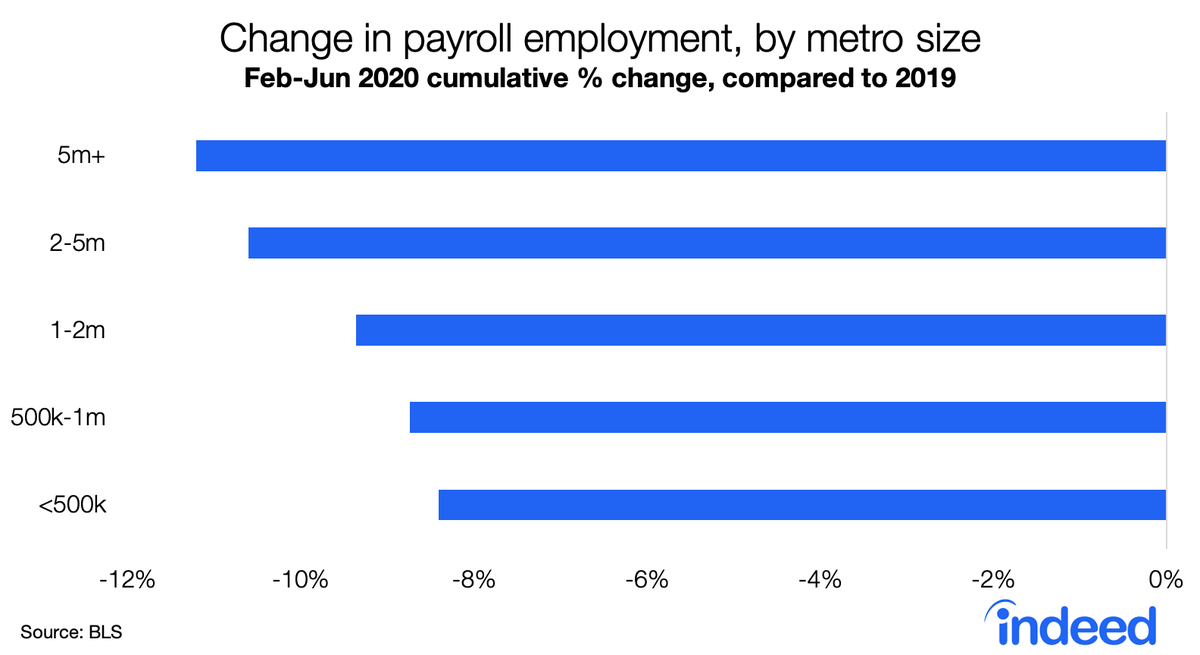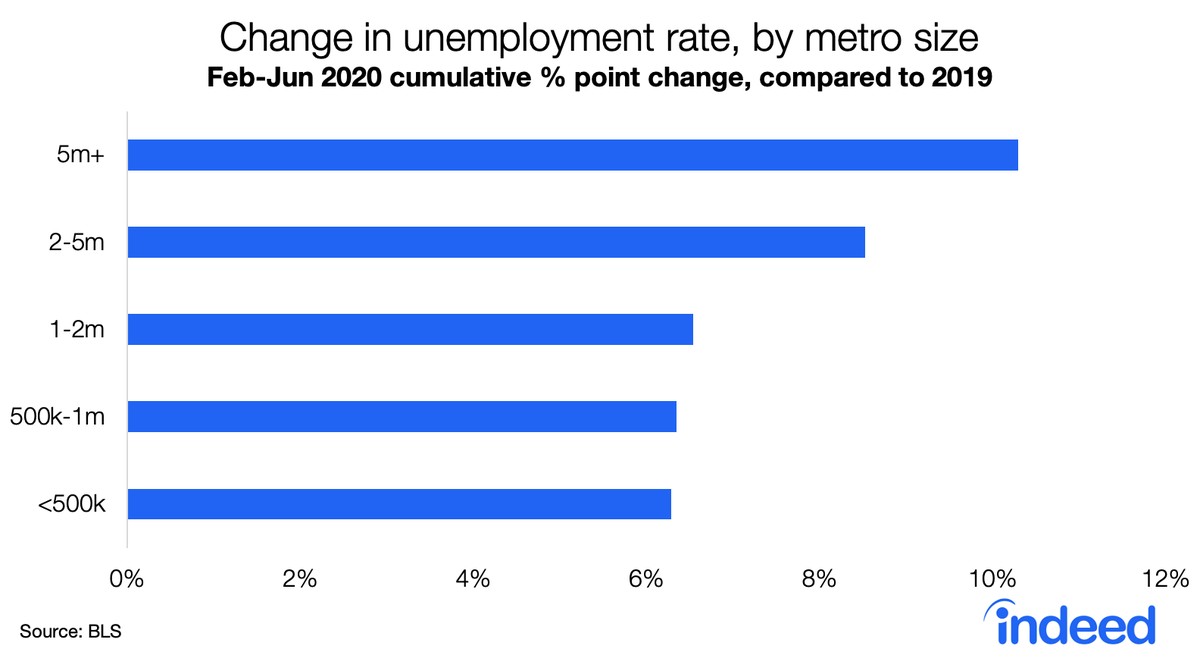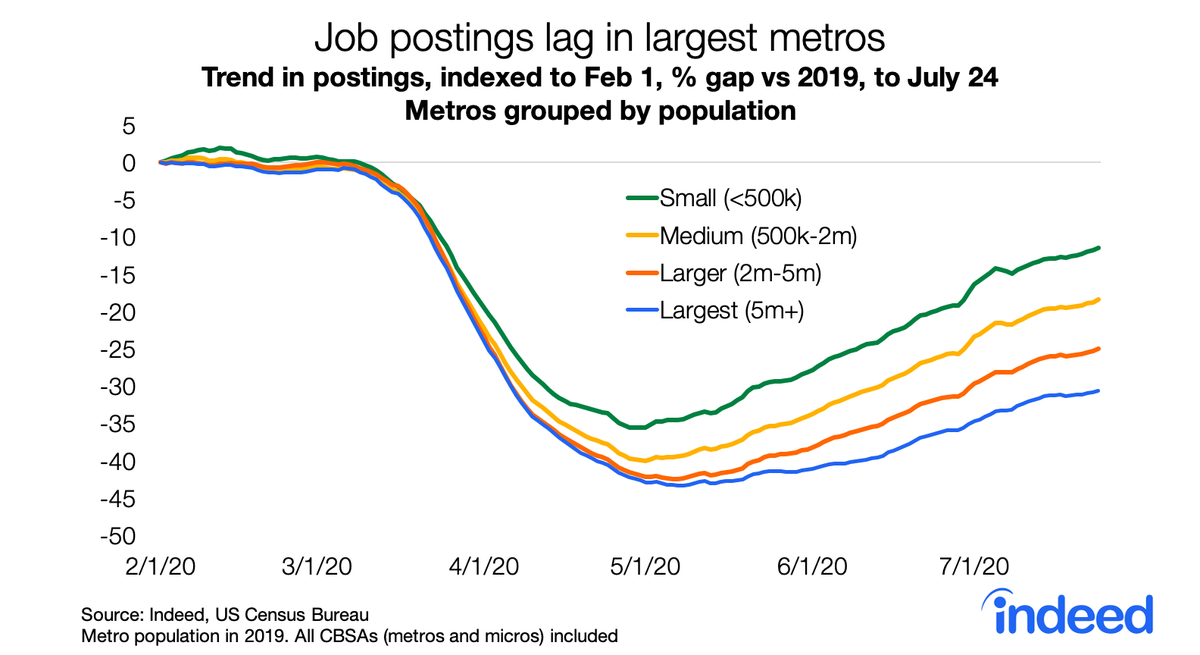Another way this time is different:
This is a big-city recession.
Payroll employment has fallen most in the largest metros since February.
1/
This is a big-city recession.
Payroll employment has fallen most in the largest metros since February.
1/
Unemployment has risen most in the largest metros.
The BLS metro payroll (SAE) and unemployment (LAUS) estimates are modeled and get revised later, but the two sources tell the same story.
2/
The BLS metro payroll (SAE) and unemployment (LAUS) estimates are modeled and get revised later, but the two sources tell the same story.
2/
Job postings on Indeed have shown the same pattern for months. The modest recovery in job postings has been much weaker in larger metros.
3/
3/
Part of the story is that more people have work-from-home jobs in larger metros, and retail/restaurants/services that depend on local customers are suffering in these WFH metros.
4/ https://www.hiringlab.org/2020/06/25/job-postings-large-rich-metros/">https://www.hiringlab.org/2020/06/2...
4/ https://www.hiringlab.org/2020/06/25/job-postings-large-rich-metros/">https://www.hiringlab.org/2020/06/2...
These gaps between larger and smaller metros are bigger than at any point in the past few decades. During the Great Recession and recovery, larger metros fared as well or better than smaller metros.
This time really is different.
5/end
This time really is different.
5/end

 Read on Twitter
Read on Twitter




